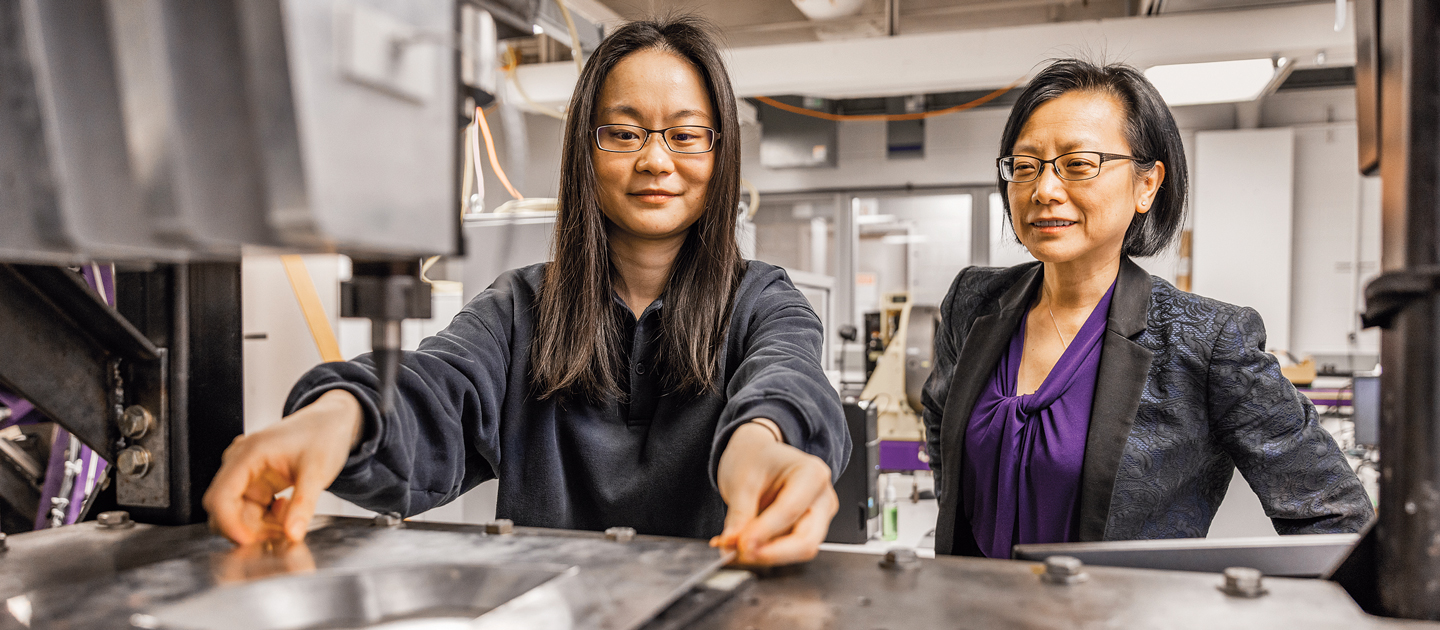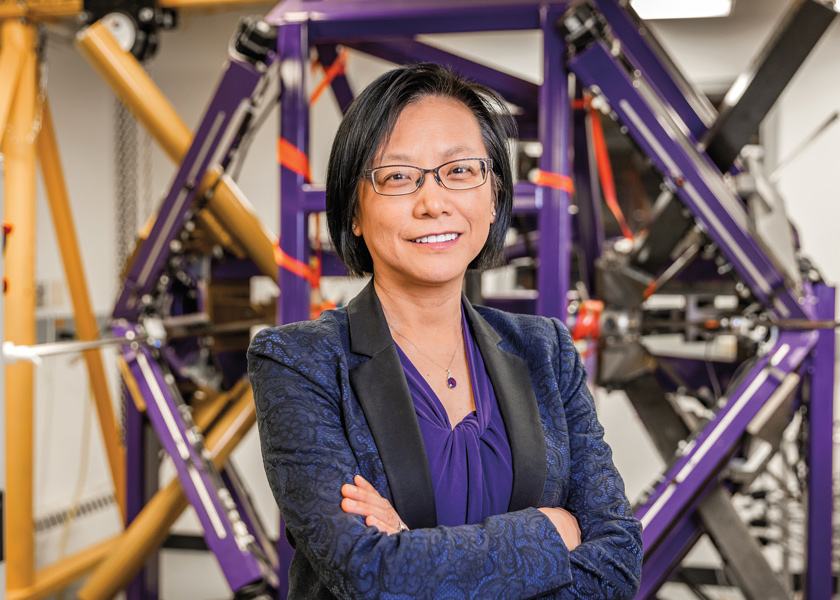Breaking the Mold
Jian Cao is shaping the future of manufacturing with her pioneering efforts in mechanical engineering.

“If you look at the advancement of human societies, most of it is technology driven,” says Jian Cao, Cardiss Collins Professor of Mechanical Engineering and (by courtesy) professor of civil and environmental engineering, and of materials science and engineering.
The opportunity to improve human existence, she explains, is what drew her to the field. “For so many different applications—from transportation to medicine—you always need a mechanical engineer,” she says.
Cao’s innovations, which include a pioneering flexible sheet-forming system, are transforming the way the world makes things. For her work, Cao has received numerous accolades, including the American Society of Mechanical Engineers’ Milton C. Shaw Manufacturing Research Medal and her recent election to the National Academy of Engineering, among the highest honors in the field.
Changing the Game
In manufacturing, there’s always a traditional way of doing things, Cao says. Looking at old processes in new ways fuels her work.
“In the Henry Ford age, manufacturing had a one-product-fits-all approach,” she says. “Today, we like more personalized products and rapid development, so we need manufacturing processes that can change the product to a new form very quickly.”
Cao’s work has led to innovative manufacturing processes and systems that have increased material manufacturability and resulted in more flexible, energy-efficient manufacturing. At the material level, she has made fundamental contributions in characterizing the forming behavior of metals and woven composites.
Her research group has designed unique equipment for forming and additive manufacturing. One of the group’s major modernizations is dieless sheet forming, which eliminates the need for a geometry-specific solid die.
“The solid die is a tooling that sometimes can weigh over a ton,” Cao says. “Traditionally, you have to make the die to form the sheets. But we said, ‘We don’t need that. We just need a simple tool that can move around using a computer control to form the part.’ That totally changed the game.”
Eliminating the die also uses less raw material, which matters a great deal to Cao, whose driving goals are sustainability and energy efficiency. “The best way to conserve resources is to use less to start with,” she says.

Differing Perspectives
Cao, who joined Northwestern Engineering’s faculty in 1995 and serves as director of the Northwestern Initiative for Manufacturing Science and Innovation, enjoys collaborating with colleagues, particularly Kornel Ehmann, professor of mechanical engineering. Her lab has nurtured doctoral students with diverse backgrounds, 43 percent of whom are either women or students from underrepresented communities or first-generation families—a statistic Cao cites with pride.
“It’s very important to gather talented people,” she says. “To make manufacturing work, you really need to have people with different perspectives and expertise coming together.”
Photography by Matthew Allen
